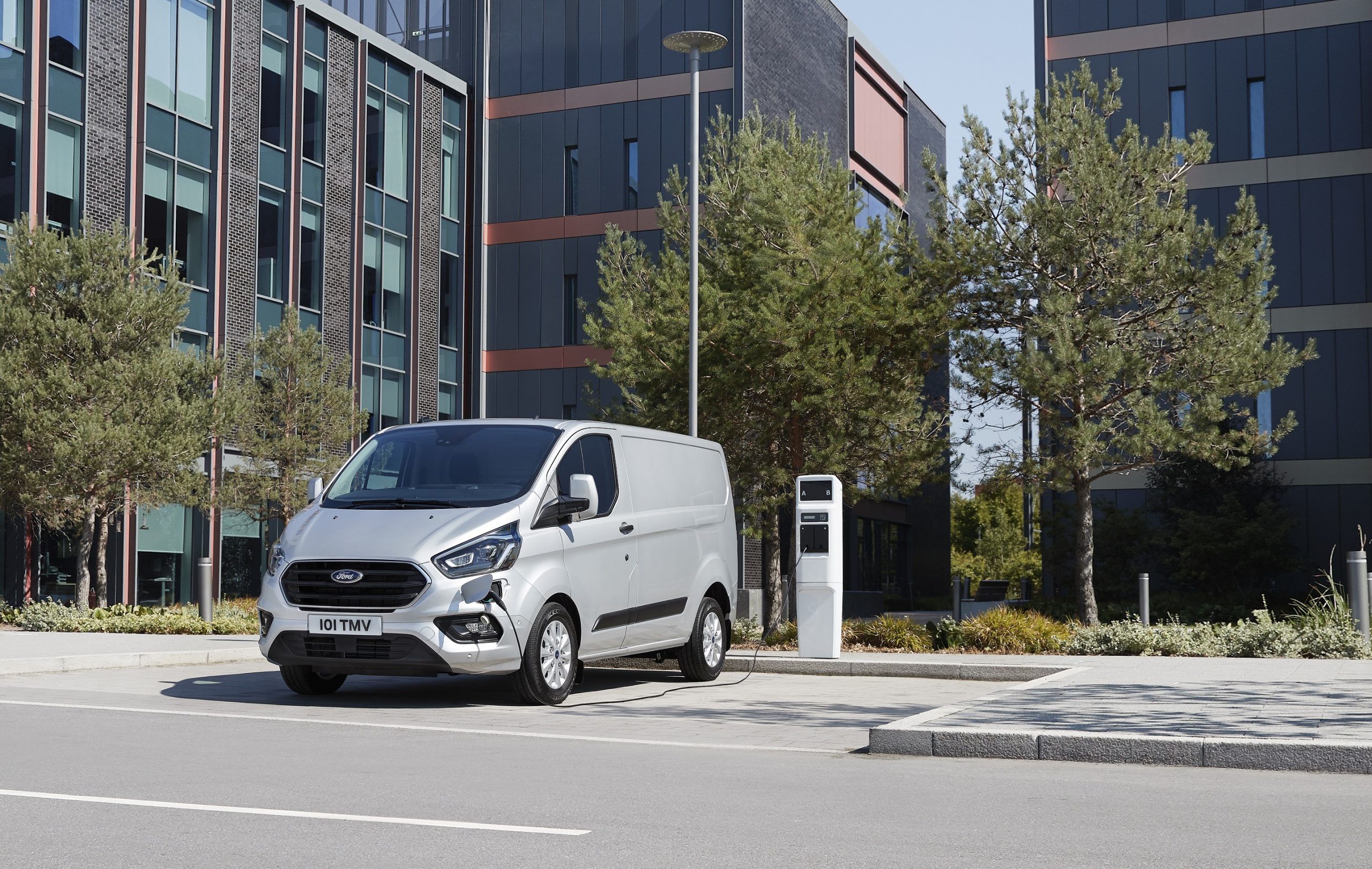
Hybrid electric vans present practical, accessible solution for cleaner air in European cities
Results of a year-long trial in London suggest that plug-in hybrid electric (PHEV) commercial vehicles could present the most practical, readily available option for businesses trying to meet clean-air targets in cities.
The trial – which was supported by £4.7 million grant from the U.K. Government-funded Advanced Propulsion Centre – consisted of 20 Ford Transit Custom Plug-In Hybrid vans covering 150,000 miles over a 12-month period. The trial sought to test whether businesses could carry out the typical daily duties of their diesel-powered vehicles, while maximising the use of zero-emissions electric-only mode.
The participants in the trial represented a cross-section of city-based businesses, and integrated the Ford Transit Custom Plug-In Hybrid vans into their day-to-day operations.
Emissions reduced
During the trial, 75 per cent of the fleet’s mileage in central London and 49 per cent in Greater London was completed using pure electric power. The results highlight that even without a fully established electric vehicle charging network, the hybrid vans were able to dramatically reduce tailpipe emissions in the inner city, using the flexibility of a petrol range-extender to complete longer journeys when required.
Commercial vehicles in London already make 280,000 journeys on a typical weekday, travelling a total of eight million miles – and this figure is rising. Vans represent 75 per cent of peak freight traffic, with more than 7,000 vehicles per hour driving at peak times in Central London alone.
A similar picture can be found in other major European cities, driven partly by rapid growth in online retail. Consequently, tighter emissions controls are being introduced by authorities throughout the continent, increasing pressure on businesses to find sustainable, practical solutions.
Trials point to improved air quality
“Emissions-free mobility is essential for the future of our cities and their citizens, but we know there are still barriers we face in the move to electrification,” said Mark Harvey, director, Urban Electrified Van programme. “We also know that businesses still have legitimate concerns about the range of fully-electric vehicles, as well as their cost-effectiveness and reliability. These trials have helped Ford and its customers to investigate the extent to which PHEVs can help to achieve urban air quality goals, while not compromising on productivity.”
Ford has already incorporated learnings from the trial of prototype vehicles to optimise the TransitCustom Plug-In Hybrid production model that will go on sale to customers at the end of 2019. Enhancements include increased motor performance, optimised operating strategies, and revised displays to educate drivers in achieving maximum electric regeneration.
“This trial is the first time Ford has given such early prototype vehicles to customers, and we’ve been able to incorporate their feedback directly into the production van,” Mark said. “The response has been overwhelmingly positive – operators don’t want to give them back.”
Ford recently announced that a new all-electric Ford Transit will join the company’s European line-up of electrified commercial vehicles in 2021. Designed to deliver pure-electric propulsion, the new van will contribute to cleaner, quieter towns and cities, and reduced running costs for business and operators.
